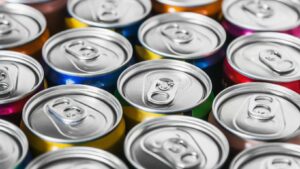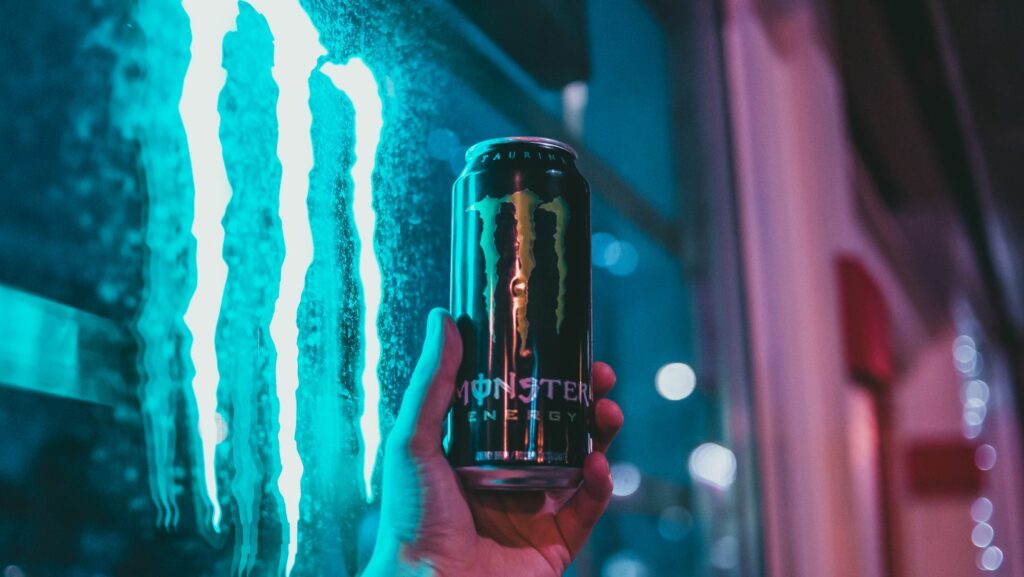Alternative to Energy Drinks
- Health Risks of Energy Drinks: Energy drinks are associated with various health issues including increased heart rates, sleep disturbances, and dependency on caffeine.
- Growing Demand for Alternatives: As awareness of health risks rises, more individuals are seeking healthier options that provide sustained energy without the adverse side effects of energy drinks.
- Popular Alternatives: Herbal teas and natural fruit juices are effective alternatives that can enhance energy levels while promoting overall well-being.
- Benefits of Healthier Choices: Switching to natural energy sources can lead to improved health outcomes, reduced anxiety, and better sleep patterns, while providing consistent energy throughout the day.
- Personalized Selection: When choosing alternatives, it’s essential to consider personal lifestyle, dietary preferences, and ingredient quality to find the best options for maintaining energy levels.
In a world that thrives on hustle and bustle, energy drinks have become a go-to solution for those seeking a quick boost. However, many are starting to question the long-term effects of these sugary, caffeine-laden beverages. As awareness grows about potential health risks, people are increasingly looking for healthier alternatives that provide sustained energy without the crash.
Natural options abound, offering a refreshing way to stay energized throughout the day. From herbal teas to nutrient-rich smoothies, these alternatives not only enhance vitality but also promote overall well-being. Discovering these substitutes can transform the way individuals approach their daily energy needs, leading to a more balanced lifestyle.
Overview of Energy Drinks
Energy drinks are popular beverages designed to boost energy, alertness, and physical performance. These drinks commonly contain high levels of caffeine, sugar, and other stimulants, such as taurine or guarana. The caffeine content in energy drinks varies significantly, often ranging from 80 mg to 500 mg per serving. For comparison, a standard 8 oz cup of coffee generally contains about 95 mg of caffeine. 
Consumers often turn to energy drinks for quick energy boosts, especially during demanding activities or late-night work sessions. However, excessive consumption can lead to various health risks. Reports indicate increased heart rates, elevated blood pressure, and sleep disturbances among frequent energy drink users. Long-term effects can include anxiety, dependency, and potential heart problems.
Public concern has surged regarding these beverages, prompting health professionals to caution against high consumption levels. Due to the growing awareness of the associated risks, many individuals are now seeking healthier alternatives that provide a more stable energy source without adverse effects. This shift emphasizes the importance of understanding energy drink ingredients and their impact on health.
Reasons to Seek Alternatives
Many people increasingly recognize the potential health risks associated with energy drinks. This awareness drives the search for safer, healthier alternatives that support sustained energy levels.
Health Concerns
Health risks linked to energy drinks raise significant concerns. These beverages often contain excessive amounts of caffeine and sugar, contributing to various health issues. High caffeine intake can cause symptoms like increased heart rates, anxiety, and insomnia. Additionally, excessive sugar consumption elevates the risk of obesity, diabetes, and dental problems. A study found that 30% of energy drink consumers reported negative side effects, including headaches and gastrointestinal distress. By choosing natural alternatives, individuals can boost energy without compromising their health.
Dependency Issues
Dependency issues present another compelling reason for seeking alternatives. Many energy drink consumers experience a reliance on caffeine to maintain energy and focus. This reliance can lead to withdrawal symptoms, such as fatigue and irritability, when intake decreases. Research indicates that regular consumption can establish a cycle of dependency, making it challenging to reduce usage over time. Opting for healthier energy sources, such as herbal teas or smoothies, can help break this cycle and promote more stable energy levels without the risk of dependency.
Popular Alternatives to Energy Drinks
Many individuals are discovering healthier alternatives to energy drinks that offer sustainable energy and well-being benefits. Here are some popular options.
Herbal Teas
Herbal teas serve as a soothing and effective way to boost energy levels. They contain no added sugars or artificial ingredients. Popular herbal teas include green tea, which has moderate caffeine content, and ginseng tea, known for its revitalizing properties. Many herbal blends, such as peppermint and rooibos, provide refreshing flavors without caffeine, promoting relaxation while enhancing alertness. Drinking herbal tea can also promote hydration, which is essential for maintaining energy levels throughout the day.
Natural Fruit Juices
Natural fruit juices provide a nutritious energy boost while being free from artificial additives. Freshly squeezed juices, particularly those made from oranges, apples, and carrots, offer vitamins and minerals that support energy production. For example, orange juice contains vitamin C, which aids in reducing fatigue, while carrot juice is rich in beta-carotene, contributing to overall health. Combining various fruits can enhance nutritional intake and flavor, ensuring a refreshing beverage that sustains energy without the crash associated with energy drinks.
Benefits of Using Alternatives
Using alternatives to energy drinks offers numerous health benefits and promotes sustained energy levels. These substitutes often come with fewer side effects and contribute positively to overall wellness.
Improved Health
Choosing alternatives leads to improved health by reducing the intake of harmful substances. Herbal teas and natural fruit juices contain fewer sugars and no artificial additives, minimizing the risk of obesity and diabetes. The rich antioxidants found in green tea support heart health and boost the immune system. Nutrient-dense smoothies provide vitamins and minerals essential for energy production and overall well-being. A study indicated that consumers switching to natural alternatives reported significant reductions in anxiety and sleep disturbances. Prioritizing health in energy sources fosters a lifestyle that supports long-term wellness.
Sustainable Energy Levels
Opting for natural energy sources promotes sustainable energy levels, eliminating the crashes often linked with energy drinks. Herbal teas, like ginseng tea, release caffeine gradually, preventing sudden energy spikes and drops. Freshly squeezed juices provide essential nutrients, ensuring stable energy throughout the day. For example, orange juice delivers vitamin C while supporting hydration, enhancing endurance and performance. Choosing alternatives enables individuals to maintain steady energy levels without dependence on stimulants, fostering a balanced approach to daily activities.
How to Choose the Right Alternative
Choosing the right alternative to energy drinks involves considering personal needs and preferences. This process helps individuals select options that effectively support their energy levels and well-being.
Consider Your Lifestyle
Assessing lifestyle factors, such as activity level and dietary preferences, guides the selection of suitable energy alternatives. Individuals engaged in high-intensity workouts may prefer protein-rich smoothies, while those seeking hydration and gentle energy might favor herbal teas. Evaluate daily routines, including sleep patterns and stress levels, to identify specific needs. Aligning choices with individual health goals, such as weight management, impacts overall satisfaction and energy stability.
Evaluate Ingredients
 Examining the ingredients in alternative options ensures informed choices that prioritize health. Look for low-sugar or sugar-free options, instead of high-sugar energy drinks. Favor ingredients with proven benefits, such as antioxidants, vitamins, and natural caffeine sources like green tea or yerba maté. Avoid artificial additives and excessive preservatives, as they can counteract health goals. Prioritizing whole foods and natural ingredients supports balanced energy levels and overall well-being, enabling individuals to enjoy sustained vitality without the adverse effects of traditional energy drinks.
Examining the ingredients in alternative options ensures informed choices that prioritize health. Look for low-sugar or sugar-free options, instead of high-sugar energy drinks. Favor ingredients with proven benefits, such as antioxidants, vitamins, and natural caffeine sources like green tea or yerba maté. Avoid artificial additives and excessive preservatives, as they can counteract health goals. Prioritizing whole foods and natural ingredients supports balanced energy levels and overall well-being, enabling individuals to enjoy sustained vitality without the adverse effects of traditional energy drinks.
Vibrant and Energized Life
Exploring alternatives to energy drinks opens up a world of healthier choices that promote sustained energy and overall well-being. By opting for herbal teas and nutrient-rich smoothies, individuals can enjoy a natural boost without the adverse effects associated with traditional energy drinks. These alternatives not only reduce the intake of harmful substances but also enhance hydration and provide essential vitamins and minerals.
Choosing the right energy source tailored to personal needs ensures a balanced lifestyle. With informed decisions, it’s possible to maintain stable energy levels and reduce dependency on stimulants, paving the way for improved health and vitality. Embracing these alternatives can lead to a more vibrant and energized life.


